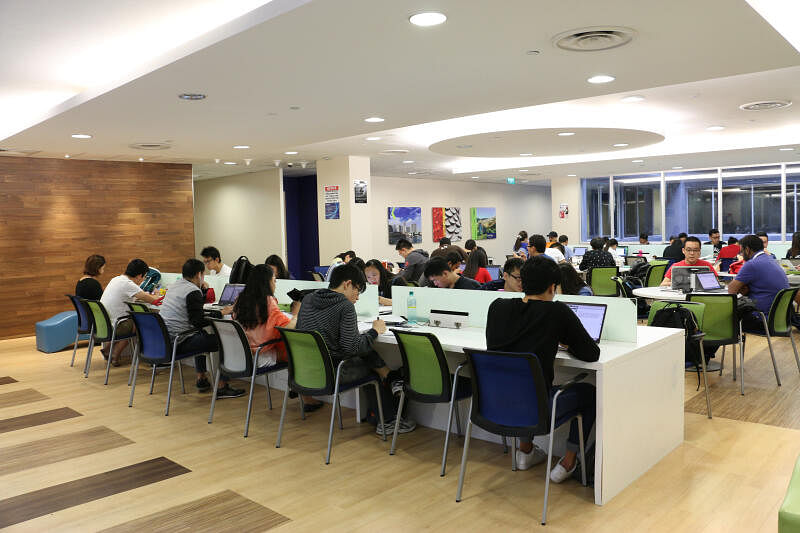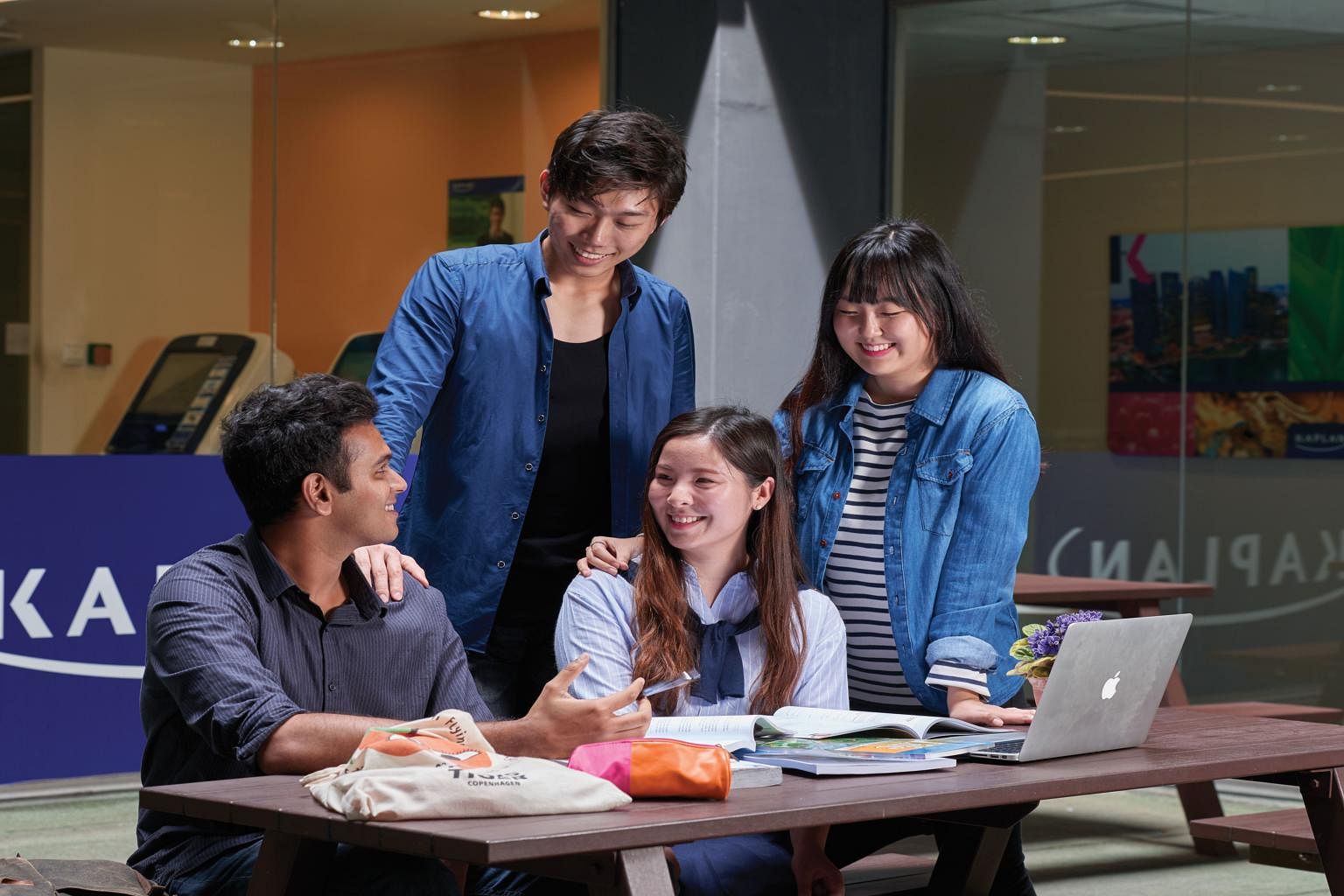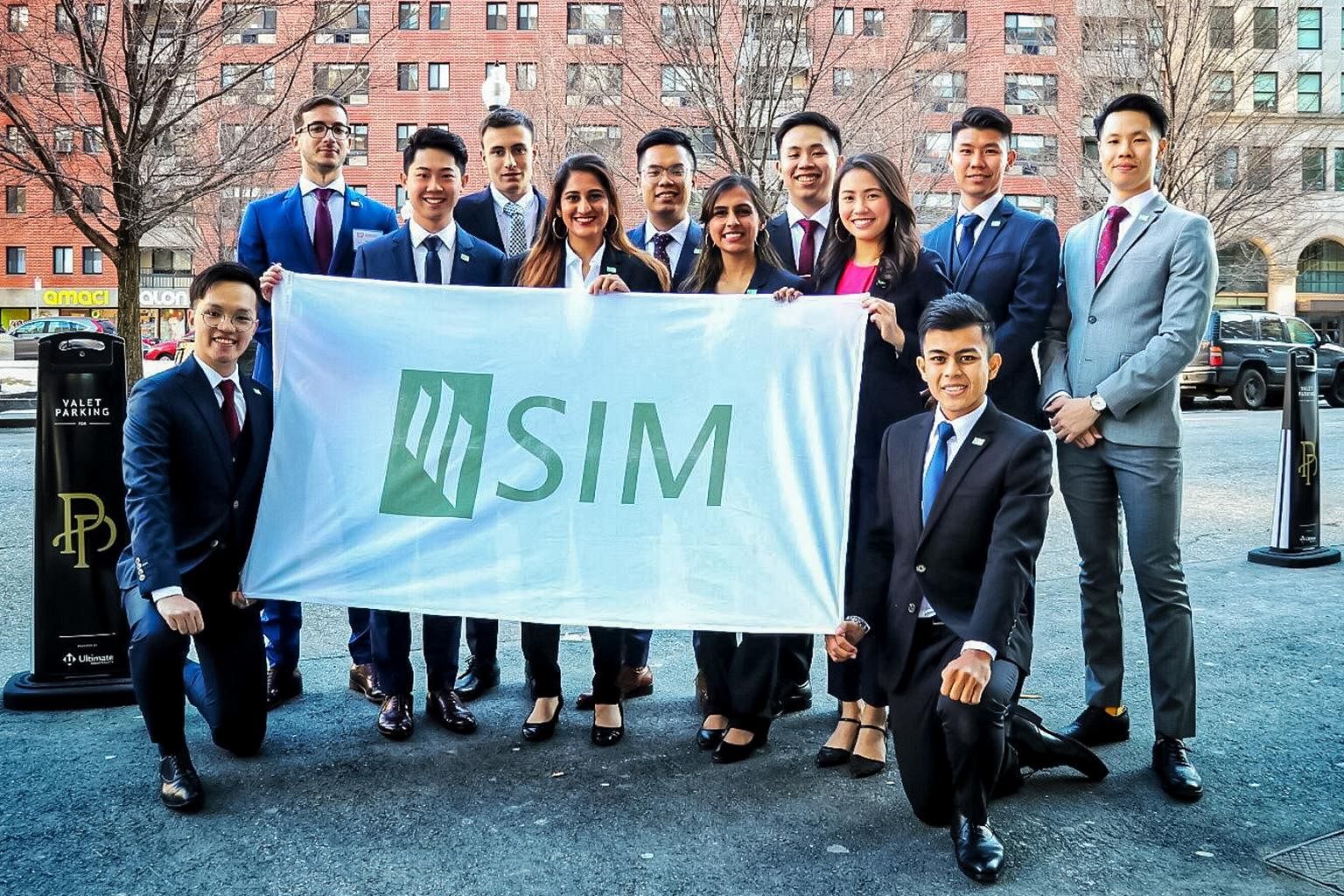askST: What to look out for before signing up for a degree course at a private school
Sign up now: Get tips on how to help your child succeed

Researching the reputation of the university by referring to international rankings can give a general idea of its standing.
PHOTO: KAPLAN
SINGAPORE - In the last part of the series on university education, The Straits Times responds to readers' questions on taking the private school route to a degree.
Q: My daughter wants a business degree, but she did not do well enough to get into the business course at the local universities. I cannot afford to send her overseas, so she is thinking of one of the more established Private Education Institutions (PEIs) like the Singapore Institute of Management (SIM) or Kaplan Singapore. What should she look out for before signing up for a degree course at a PEI?
A: Business is a popular course of study, so it is quite competitive at the local universities.
I presume she has also tried the aptitude-based admissions route at the local universities. The six local universities, including the National University of Singapore and Nanyang Technological University, are considering more applicants based on more holistic admission criteria other than their grades.
There are various options available in the private-education sector and it is good she is looking at the more established institutions, which have a track record.
She should also check if the PEI offers the specific course and specialisation she is interested in.
So, if she wants to study business with a specialisation in digital marketing or banking and finance, be sure the private school offers the specific course.
It is also good to check on the partner university which is offering the degree. Most of the PEIs here, including Kaplan and SIM, have a range of partners from Britain, Australia and the United States.
Research the reputation of the university by referring to the international rankings by Quacquarelli Symonds and Times Higher Education. This will give a general idea of the standing of the universities.
There are many "in-country rankings" as well - such as the US News and World ranking for institutions in the country.
The different disciplines are also considered in international rankings.
These can be a lot more useful in choosing universities. While some universities may not do well in overall rankings, they may be ranked higher in specific disciplines like business or engineering.
It is also important to check how involved the partner universities are in running the academic programme provided by the PEI.
Kaplan, for example, has partner universities such as Murdoch University from Western Australia, which has a pro vice-chancellor in charge of transnational education based in Singapore to oversee the academic aspects of the programmes the university offers here. The deputy dean is also based here.
Check on the lecturers teaching the courses here. Some universities use their academic staff from the home campus - they are flown in to teach the courses. Others use a mix of academics from the home campus and supplement them with lecturers based here.
Every year, students and parents ask me about the quality of education private institutions provide.
It is a legitimate concern as the private-education sector in Singapore is of uneven quality.

Visit the Committee for Private Education website to ensure the PEIs your daughter is considering have the quality mark - the EduTrust Certification Scheme (EduTrust) - which assesses a private school's academic processes such as corporate governance and administration, quality management and the protection and welfare of students.
All the institutions hold open houses and encourage campus tours. You should attend them with your daughter.
This is an important recruitment time for the partner universities. Many will have their lecturers and deans there. You both should speak to the programme heads and academics about the courses.
Check out the facilities provided by the PEIs to ensure they provide more than just classes.
Kaplan's two campuses - in Selegie Road and Wilkie Edge - have facilities such as lounges and spaces where students can interact.
SIM stands out from the other PEIs because of its sprawling campus along Clementi Road.
That is why it is able to offer more than 70 student clubs and societies for its 16,000-strong student body, including sporting activities such as canoeing, badminton and tennis. SIM also has a gym, sports and multi-purpose halls and even a dance studio for its students.
Every year, a group of SIM students participates in the Harvard National Model United Nations Conference in Boston in the US, to gain insights into the workings of the United Nations and the dynamics of international relations.

PEIs do offer programmes that nurture skills in communication, teamwork and cross-cultural literacy.
In fact, the bigger PEIs offer a range of programmes to nurture these skills, which are also commonly referred to as "soft skills" or "21st century competencies".
SIM chief executive officer Seah Chin Siong said the PEI believes strongly in an all-round education for its students.
"Our goal is to ensure our students can succeed in today's fast-moving world. Many of these skills such as leadership skills, being able to work in diverse global teams and perhaps even leading them, are best nurtured outside of the classroom."
Last year, SIM established the Centre for Micro-credentials, which offers core modules with micro-credentials in the areas of data analytics, design thinking, programming, fintech, blockchain and artificial-intelligence applications.
These modules are offered as degree-plus options for students to augment what they are learning in their undergraduate degree programmes. There are plans in the future to structure these micro-credentials into stackable pathways, which can lead to a diploma or even degree qualification.
A spokesman for Kaplan said with blended learning as a new norm, the PEI incorporates opportunities for students to speak up and collaborate with their lecturers and peers, such as group work and delivering presentations live.
There is also Kaplan i care, in which students can take part in or lead community-service projects.

Its students also get involved in industry projects, in which they can come together in teams to solve real-world problems.
There are also the Fourth Industrial Revolution courses, such as data management and analysis and Python programming.
Kaplan's president Joe Keen Poon said the school emphasises these soft skills.
"With the global developments today and the need to thrive in the new normal, there is significant emphasis on interpersonal and emotional soft skills, such as adaptability, resilience and effective communication, to navigate the evolving environment.
"In recent years, we have invested more and reorganised operationally to have a dedicated team to focus on enhancing our graduates' employability through myriad initiatives and activities, and to prepare our students to be career-ready and be active and valuable contributors," he said.


